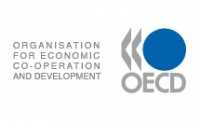The Intersessional Meeting was concluded without reaching consensus regarding the implementation of the Joint Work Plan concerning Zimbabwe’s diamonds
As Chair of the Kimberley Process (KP) for 2010, Israel held the annual Intersessional Meeting from June 21 - 23, 2010 in Tel Aviv.
The Intersessional Meeting was held in preparation for the Plenary Meeting, to be held November 1 - 4, 2010 in Jerusalem. On the agenda of the Intersessional Meeting was the progress of the Joint Work Plan (JWP), agreed upon at the last Plenary Meeting in Swakopmund, Namibia inNovember 2009, for implementation of the KP minimum standards in the Marange area of Zimbabwe.
The Intersessional Meeting was concluded without reaching consensus regarding the implementation of the Joint Work Plan (JWP) concerning Zimbabwe’s diamonds andthe work carried out by the KP Monitor to Marange.
According to KP Chair Boaz Hirsch, who played a pivotal role in attempting to breach the gap between the sides along with Chair of the Working-Group on Monitoring, Stephane Chardon and Eli Izhakoff, President of the World Diamond Council (WDC), such a situation has never happened before at a KP meeting.
Israel is promoting additional topics aimed at consolidating and fortifying the efficiency of the KP. Led by Mr. Hirsch, the KP approached the World Customs Organization (WCO) in order to revive the cooperation between the two organizations in issues of enforcement. In a meeting between the KP Chair the Secretary General of the WCO, a jointteam was established to draft a multi-annual work plan for collaboration between the two international bodies.
In addition, a seminaron enforcement of border control will be held adjacent to the meeting. The seminar, an initiative of the USA, Canada and the Civil Society representatives, will be attended by customs representatives from various countries.The Kimberley Process Certification Scheme (KPCS) was established in 2003 as a forum of countries that produce and trade in rough diamonds, in order to provide a credible global system to supervise this trade.
The mandate of the process, as defined by the U.N. Security Council, is to prevent the trade in rough diamonds originating in areas that are controlled by resistence groups, and to prevent the profits from the sale of these diamonds to support the activity of resistance groups, the trade in weapons, the overthrow of legitimate governments and activity that violates the human rights of citizens in countries which produce rough diamonds. During the past 7 years the Kimberley Process succeeded in reducing the trade in conflict diamonds to about 1% of all rough diamonds traded. The KPCS currently includes 75 countries. In addition to governments, it brings together representatives of the global diamond industry, through the World Diamond Council, and human rights NGO’s.
Israel held Kimberley Process intersessional meeting
The Intersessional Meeting was concluded without reaching consensus regarding the implementation of the Joint Work Plan concerning Zimbabwe’s diamonds
28.06.10 / 00:00
•
More articles that may interest you

YANG MING's new TEU6,572 vessel "YM MANDATE" called at Ashdod

CBS: May CPI up 0.4%

CBS: Israel's diamond export in May up 64%

IMF Managing Director Praises Israel’s Biennial Budgeting Process

OECD selects Jerusalem to host its 86th tourism conference

Delta Airlines VP: Delta to add seats on TLV - NY route
More news from Industry & Trade Section
>Export of services up in April/22.06.10
>CBS: trade deficit in May totaled US$0.6 billion/22.06.10
>CBS: record 309,000 tourists visited Israel in May/14.06.10
>Israel's unemployment rate drops 0.7%/07.06.10
>Eight Israeli firms named in Red Herring 2010/07.06.10
>Consumer confidence index falls in May/07.06.10
>Joint Israeli Jordanian customs committee met at Rabin border crossing/07.06.10
>US to allow imports of Squash Flowers from Israel/31.05.10
>IEICE: Exports to EU in March-April 2010 fall 6%/31.05.10
>The OECD forecast faster growth for Israel than predicted by BOL/31.05.10
